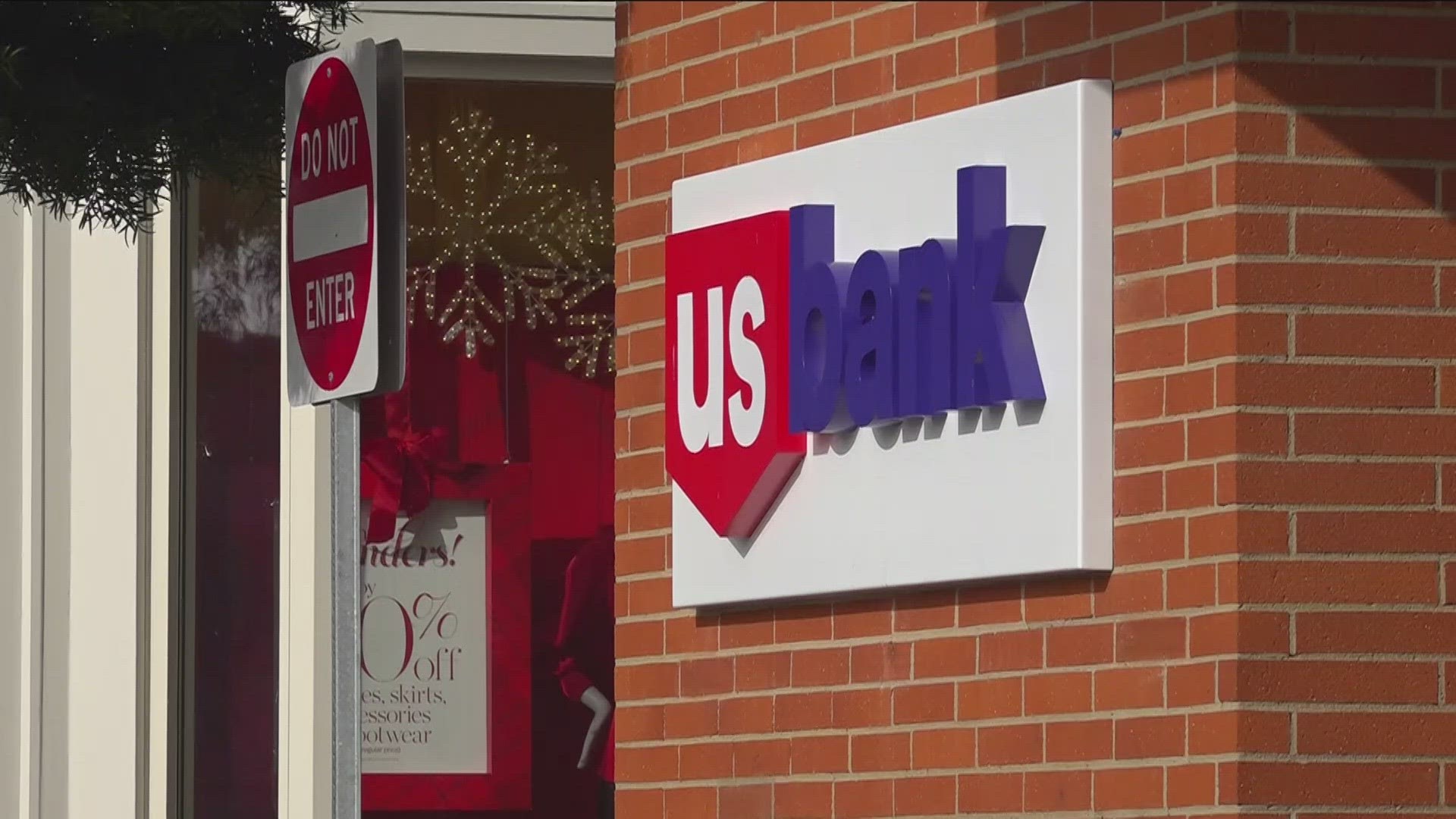SAN DIEGO — Working for You Update Nov. 27:
A La Jolla Man has been reimbursed by US Bank after being conned out of $18,000.
After speaking to CBS 8, we reached out to US Bank. The bank’s vice president of public affairs promised to take another look at Del Muro’s case.
Then, on the day before Thanksgiving, “Lo and behold, there's $18,000 and change in our savings account,” said Del Muro.
Del Muro said he received no notice, no call from the bank. The $18,000 was simply transferred back into his account.
“I think all the views from YouTube and the great coverage that San Diego News 8 did for me really put a spotlight on the problem of fraud and wire fraud,” said Del Muro.
Original story Nov. 17:
A La Jolla father of five is speaking out about bank fraud after getting conned out of $18,000 in a telephone scam. Mark Del Muro agreed to be interviewed on camera to help prevent other people from being scammed out of their hard-earned money.
Somehow, the scammers knew Del Muro's cell phone number and that he was a customer at US Bank. “The first thing I saw on my phone was US Bank customer service,” said Del Muro.
The conman called him claiming he was investigating unusual transactions on Del Muro’s bank account. “Did you make a purchase at Kroger? Did you make a purchase with Apple? Did you make this purchase with Walmart,” the man asked.
Del Muro became worried. He had not made the purchases and the man told him they were going to have shut down his account. “The initial panic of like, hey, somebody's in our bank account. And the first thing you want to do is like, oh, my God, I got to stop it,” Del Muro recalled.
The scammer said US Bank would text Del Muro a code and he needed the code repeated back to verify his identity. “The texts were actually going into my wife's phone, and I'm asking for the codes, which, in hindsight, were basically codes to allow him to change my password,” said Del Muro.
The conman used the verification code to change Del Muro’s password on the bank website, and then wired $18K to a Chase bank account in New Jersey.
An hour later, Del Muro called US Bank but he was too late.
“They did an investigation, and they just said that well, looks like you went ahead and gave that passcode and thus you have authorized that person to take the money from your account and wire it to another account,” Del Muro said.
US Bank wrote a letter to Del Muro about a month later saying there was nothing the bank could do.
“99.9% of our victims, once the money is gone, there's nothing that we could do to get it back,” said Scott Pirrello, a deputy district attorney in the San Diego DA’s elder abuse prosecution unit.
Pirrello said it’s not just the elderly who are getting scammed. “This is happening to very intelligent people, college professors, engineers, former law enforcement, it's happening to everyone across the entire spectrum,” said Pirrello.
A common tactic is to scare the victim, Pirrello said.
"The scammers are trying to instill fear and urgency so that the person being scammed doesn't have time to rationally reflect on what's happening,” Pirrello said. “Slow down. Take a deep breath. There's no scenario in our everyday lives where you would be thrust into withdrawing huge amounts of your nest egg or wiring money in such an impulsive way.”
The best advice: verify before taking any action.
“If you get a call from anybody, just hang up and then call that business. or call that bank, and just make sure that he is legit,” said Del Muro.
CBS 8 reached out to US Bank. A spokesperson offered this general advice to bank customers:
“Fraudsters will stop at nothing trick account holders into giving them personal information and verification codes that provide access to clients’ bank accounts and money. This includes the use of spoofed phone numbers or text messages claiming to be a representative of a client’s bank, asking for personal information, online credentials or one-time authentication passcodes under the guise of attempting to help the individual. U.S. Bank will never call a client and request login, authentication or verification codes. It is critical that clients remain vigilant and avoid falling victim to a scam and providing this information to anyone, as doing so allows bad actors to circumvent security protections in place. Instant forms of payment, including wire transfers, should be treated same as cash, and in the event a client receives a suspicious message claiming to be their bank they are encouraged to hang up and call their financial institution directly at a trusted number.”
Regarding Del Muro’s specific situation, US Bank Vice President of Public Affairs, Even Lapiska replied, “I’m happy to ask our team to take a look at the client’s claim to see if there is any additional information we can provide, but I won’t be able to provide information on this particular client’s situation prior to your deadline.”
CBS 8 will continue to follow the story and report any new developments.
WATCH RELATED: San Diego DA uses billboard to warn against committing insurance fraud

